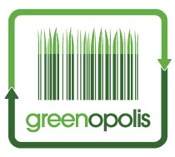Team Shambhala: Nike’s Journey from Wasted Reputation to Corporate Responsibility
Nike is considered a top example of corporate social responsibility.
Nike’s Journey from Wasted Reputation to Corporate Responsibility
Nike is considered a top example of corporate social responsibility.
Back in the late 1990’s footwear and sports apparel giant Nike was hitting a rough patch. They were dogged by furor over labor practices in overseas manufacturing facilities and worried about waste in manufacturing. They were looking for substitutes for toxic solvents used to bind shoe parts together, and a new gas to fill the famous Nike Air shoes with that wouldn’t add to climate change woes. They were seeking to eliminate wasted fuel and trips in shipping.
Now, a little more than a decade later, Nike is considered a top example of corporate social responsibility. They lead the rest of the field in setting standards for ethical labor practices at overseas manufacturing facilities. They’ve reduced their ‘carbon footprint” by 75%, by finding a non greenhouse gas to fill Nike Airbags, and have dramatically reduced waste in their footwear and apparel manufacturing by adopting "closed loop" strategy of zero waste, zero toxics, 100% recycling, 100% clean energy. They are a huge user of organic cotton and helped found the Organic Cotton Exchange to connect cotton farmers with cotton users and bring more organic cotton online. They have an entire line of products — Considered Design, which considers the future, the impacts, the waste, the energy and so on of every aspect of a product throughout its life.
What fomented such a dramatic turnaround in just a dozen years? Well, a key part of it was an initiative that Nike launched in 1999 called Team Shambhala. Nike wanted to get their entire company- 20,000 people worldwide- grounded in a way of thinking that naturally took environmental and social issues into account in every decision the company made and every action they took. My wife and then work partner Sara Schley and I were fortunate enough to be part of that effort, helping to design a yearlong learning experience for 100 key Nike executives. They idea was to take a group of key leaders, networkers, and influencers across the company and build their capacity to think systemically about ‘green’ issues, to accelerate their learning path about them and empower them to take action on real time business projects and objective. This was the Team Shambhala effort — named after the Tibetan warriors who act for the common good without recognition.
There was a reunion recently of a number of Shambhala “graduates” including our friends Greenopolis blogger Darcy Winslow, formerly VP of Women’s Footwear, Apparel and Equipment for Nike, and Sarah Severn, the catalyst behind Shambhala, currently Director of Horizons for Nike.
Nike hosted the lunch to try to capture the “magic’ of Shambhala for anew generation and a new era. As Darcy summarized the experience:
“In 2000, a small team of Sustainability leaders at Nike engaged in a yearlong employee learning and engagement initiative, aptly named Shambhala. The result of this one year intensive helped transform Nike's approach to sustainability, created 100 internal champions who launched dozens of landmark projects that continue to deliver against our 2020 goals. These 100 champions continue to influence this work around the world and epitomize the 'genealogy of influence'!”
Nike now has a shared environmental vision, stated in their Sustainability Report :
-
We design for recycling
-
Consumers bring their products back to us to be recycled into new products
-
Waste that cannot be eliminated is recycled
-
Product is less reliant on oil and water
-
We all step lighter, faster into a future low-carbon sustainable economy
-
We use healthier chemistry to minimize the impact of product ingredients through lifecycle
So the work continues, Nike continues to be leader in environmental and social responsibility, and the ongoing influence of the Shambhala participants proves that organizational learning and systems thinking are two keys to unlock a sustainable future, and transform the path of companies from pariahs to prophets/profits!
Greenopolis.com is dedicated to our users. We focus our attention on changing the world through recycling, waste-to-energy and conservation. We reward our users for their sustainable behaviors on our website, through our Greenopolis Tracking Stations and with curbside recycling programs.
GREENOP5259

